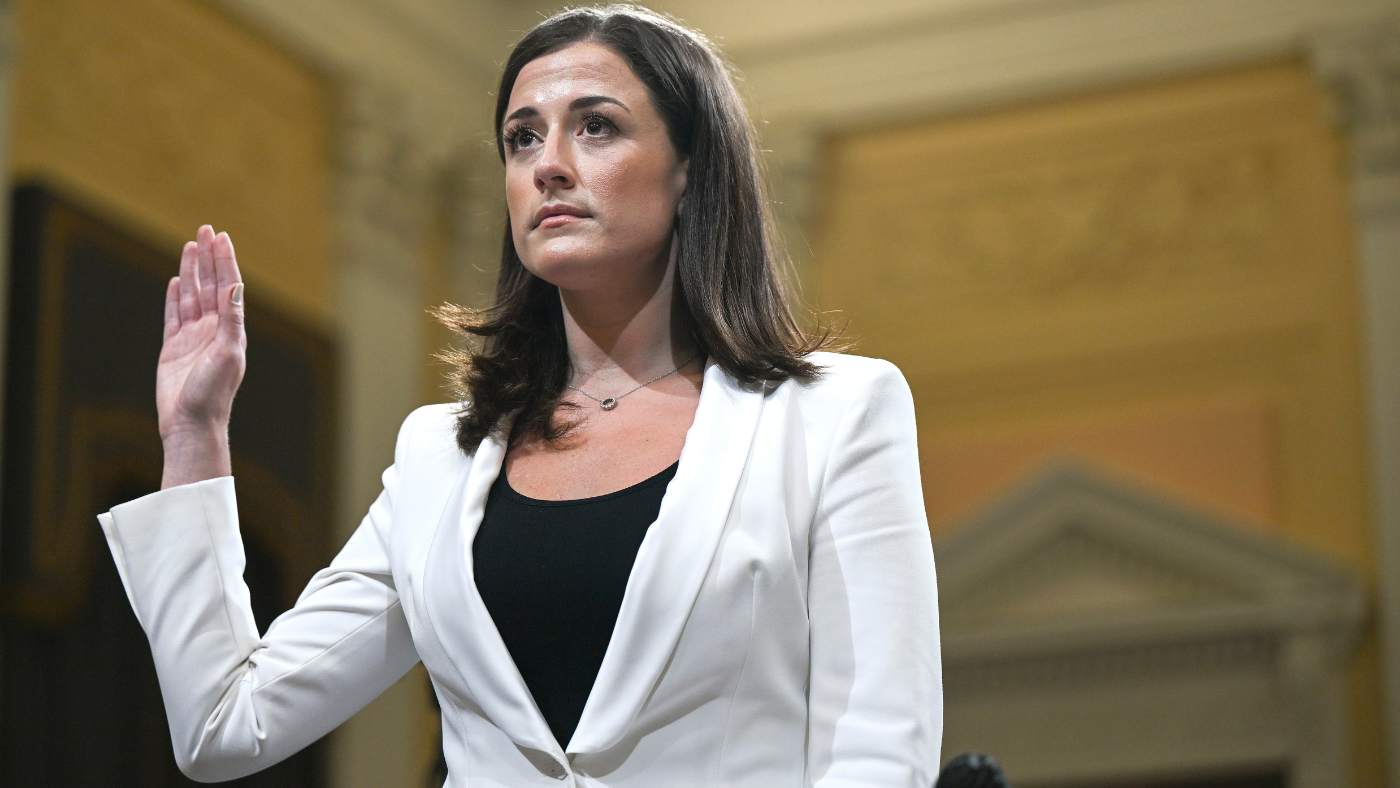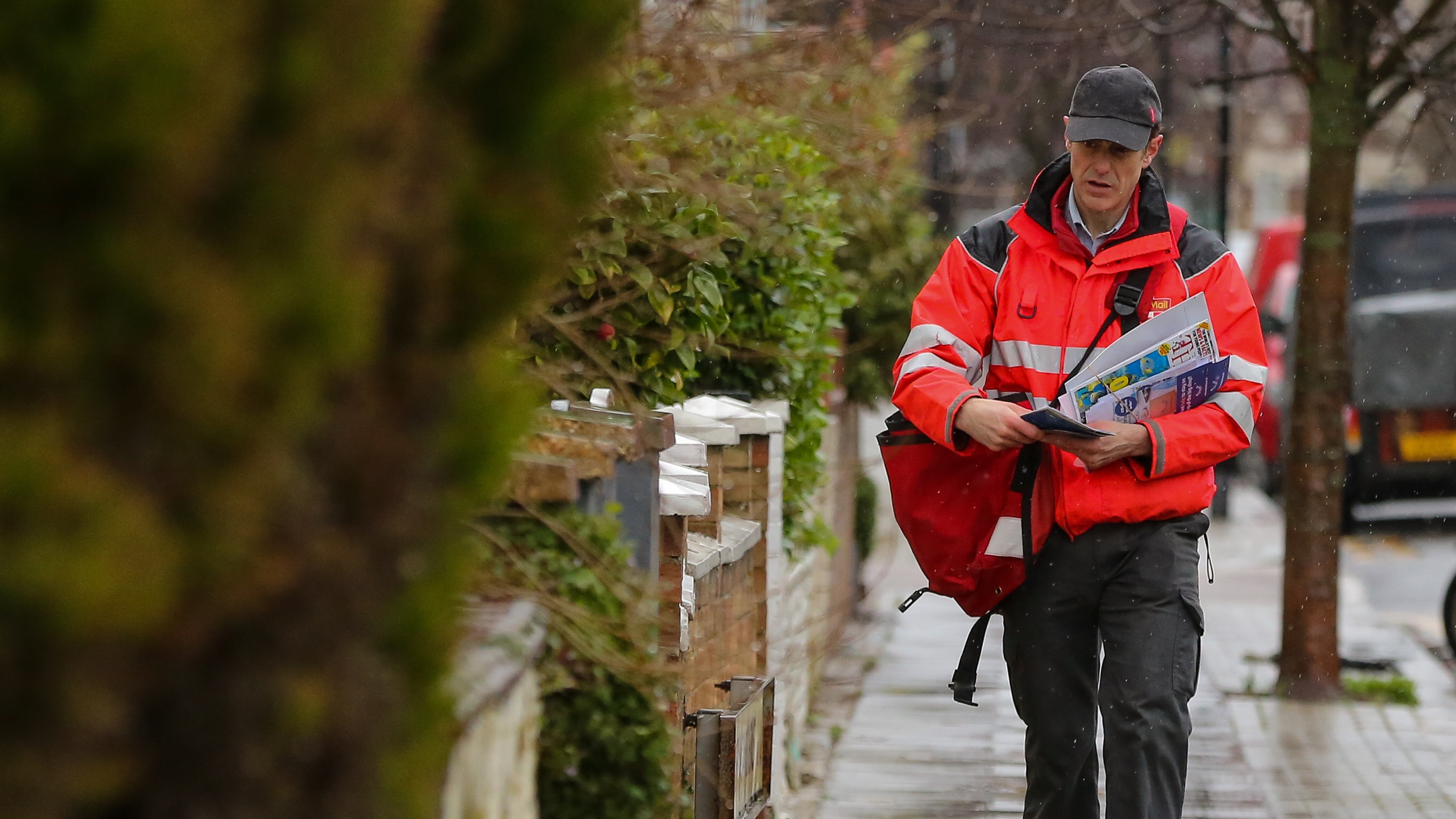‘I want the nightmares to end for the women traumatised by Chris Noth’
Your digest of analysis from the British and international press

- 1. Chris Noth’s behaviour on set for ‘Sex and the City’ was disgusting. I know – I was there
- 2. ‘Fake it ‘til you make it’ was a fine Silicon Valley creed – until it involved my blood test
- 3. Women are turning away from the Tories
- 4. Omicron is the beginning of the end
- 5. As a widow, I know the strangeness of grief and that ghosts come in many forms
A free daily email with the biggest news stories of the day – and the best features from TheWeek.com
You are now subscribed
Your newsletter sign-up was successful
1. Chris Noth’s behaviour on set for ‘Sex and the City’ was disgusting. I know – I was there
Heather Kristin in The Independent
on trauma and solidarity
Heather Kristin “felt relief” when the character Mr Big, played by Chris Noth, died in the Sex and the City reboot And Just Like That. Three women have come forward with allegations of sexual assault against Noth, and she is “sure” that watching the reboot they “felt the same”. A stand-in for Kristin Davis on the show for four seasons, Kristin remembers Noth’s “toxic behaviour all too vividly”. “My gut said to quit”, she says in The Independent, but “instead, I stayed too long” and “did my best to stay out of his path”. Working on the show, “the atmosphere was toxic”. An essay written by Kristin in February this year detailing sexual harassment on set “went viral”, and it was later reported that Noth wouldn’t return to the show. “Imagine my surprise when months later he was hired for the reboot,” she says. “I felt betrayed yet again.” Her experience was “small compared to the brave women who have come forward” in the last week, she adds, and she is “glad” cast members have “responded with their support for those women”. “I want the nightmares to end” for those who have been “traumatised”.
The Week
Escape your echo chamber. Get the facts behind the news, plus analysis from multiple perspectives.

Sign up for The Week's Free Newsletters
From our morning news briefing to a weekly Good News Newsletter, get the best of The Week delivered directly to your inbox.
From our morning news briefing to a weekly Good News Newsletter, get the best of The Week delivered directly to your inbox.
2. ‘Fake it ‘til you make it’ was a fine Silicon Valley creed – until it involved my blood test
Meghan Kruger in The Washington Post
on risky attitudes
“The fate of Theranos founder Elizabeth Holmes now rests with a jury,” says Meghan Kruger at The Washington Post. After 15 weeks of testimony, they will rule whether she ran “a greedy scam”, by claiming her company's blood test could detect several diseases from a few drops of blood, as the prosecution argued, or was “the victim of her own inexperience, of sexual abuse, of overwhelming pressure to deliver”, as the defense contends. Holmes may be innocent until proven guilty, but “she’s guilty on at least two counts: providing me with a terrible customer experience, and embracing one of Silicon Valley’s most dangerous philosophies”. A blood test taken at a local Walgreens left me “incredulous”, she adds. In Silicon Valley, “the innovators’ creed” may have been “fake it ’til you make it”, but in some industries, the price of that “dogma is measured in human lives”. “There’s a blurred distinction between the brazenness that defines successful entrepreneurs and outright fraud,” she adds. Now, Holmes waits “to see which side of the line 12 jurors think she was on”.
A free daily email with the biggest news stories of the day – and the best features from TheWeek.com
3. Women are turning away from the Tories
Rachel Sylvester in The Times
on shifting allegiances
“Boris Johnson has a serious problem with women,” writes Rachel Sylvester in The Times. His support among female voters “has dropped off a cliff in the past month” and the consequences could be “potentially disastrous” at the next general election. Being “less tribal about their politics”, women are a “politically crucial group”. But Johnson is “haemorrhaging” their support. YouGov research reveals women have expressed “disappointment” and have “lost faith in the prime minister”, she says. His “previously endearing” attributes “had become infuriating” to women surveyed. “Frustration has been building” and “discontent” was “compounded” by sleaze scandals. Meanwhile, “Labour spots an opportunity” amid the “shifting” allegiances of female voters while “senior Conservatives sense a threat”, she adds. Johnson “must do much more to convince women that they can trust him or his colleagues will soon start looking for another leader who is better able to do so”.
4. Omicron is the beginning of the end
Yascha Mounk in The Atlantic
on changing tides
“It feels like everyone I know has Covid”, says Yascha Mounk in The Atlantic. Despite “muddy early data” that indicates “the immediate epidemiological future is uncertain”, he would “wager that, whatever course Omicron – or future strains of the disease – might take, we are about to experience the end of the pandemic as a social phenomenon”. Cases are “skyrocketing”, but “the appetite for shutdowns” just “simply isn’t there”. Compared to previous waves, “we have quietly decided to throw up our hands”. Joe Biden’s administration is taking “sensible measures”, but they are designed “to help us cope with a surge of cases, not to prevent one from happening in the first place”. Mounk says that the US “now seems poised to respond to future waves with a collective sigh and a shrug”. It looks like we could “soon lead lives that look a lot more like they did in the spring of 2019 than in the spring of 2020”.
5. As a widow, I know the strangeness of grief and that ghosts come in many forms
Kat Lister in The Guardian
on untraditional mementos
For those “left behind” when a loved one dies, “grief totems aren’t always easy to rationalise”, writes Kat Lister in The Guardian. Be it a “toothbrush casually discarded by the sink” or “an airline boarding pass shoved into a tatty paperback novel”, these “random markers” can provide a “strange comfort”. “There is an ethereal otherworldliness that can be seen on an iPhone screen”, with “countless messages” and voicemails archived for those who care to look. Twitter threads, Instagram posts and WhatsApp groups now present “a different kind of treasure” for those who grieve. Folklore typically paints a ghost as “a hazy, semi-transparent outline of a departed soul” when “in reality, apparitions can be all the fragments that make up the life you had”. These “totems and beloved artefacts” occupy a place “between ‘here’ and ‘there’”, she adds, and remain as “objects we cannot rationalise in the Valley of Lost Things.”
-
 Quiz of The Week: 7 – 13 February
Quiz of The Week: 7 – 13 FebruaryQuiz Have you been paying attention to The Week’s news?
-
 Nordic combined: the Winter Olympics sport that bars women
Nordic combined: the Winter Olympics sport that bars womenIn The Spotlight Female athletes excluded from participation in demanding double-discipline events at Milano-Cortina
-
 Samurai: a ‘blockbuster’ display of Japanese heritage
Samurai: a ‘blockbuster’ display of Japanese heritageThe Week Recommends British Museum show offers a ‘scintillating journey’ through ‘a world of gore, power and artistic beauty’
-
 ‘The UK’s malaise will not end with the Prime Minister’s exit’
‘The UK’s malaise will not end with the Prime Minister’s exit’Instant Opinion Your digest of analysis from the British and international press
-
 ‘Police tactics are not getting worse, they are simply being filmed’
‘Police tactics are not getting worse, they are simply being filmed’Instant Opinion Your digest of analysis from the British and international press
-
 ‘G7 leaders missed a golden opportunity’
‘G7 leaders missed a golden opportunity’Instant Opinion Your digest of analysis from the British and international press
-
 ‘It takes some soul searching to celebrate Canada Day’
‘It takes some soul searching to celebrate Canada Day’Instant Opinion Your digest of analysis from the British and international press
-
 ‘Breakthrough on abortion rights could be there if Biden reaches for it’
‘Breakthrough on abortion rights could be there if Biden reaches for it’Instant Opinion Your digest of analysis from the British and international press
-
 ‘If only Mark Meadows had even half Cassidy Hutchinson’s courage’
‘If only Mark Meadows had even half Cassidy Hutchinson’s courage’Instant Opinion Your digest of analysis from the British and international press
-
 ‘Boris Johnson measures success in biceps rather than brain power’
‘Boris Johnson measures success in biceps rather than brain power’Instant Opinion Your digest of analysis from the British and international press
-
 ‘Asking posties to act as community watchmen is an inspired idea’
‘Asking posties to act as community watchmen is an inspired idea’Instant Opinion Your digest of analysis from the British and international press